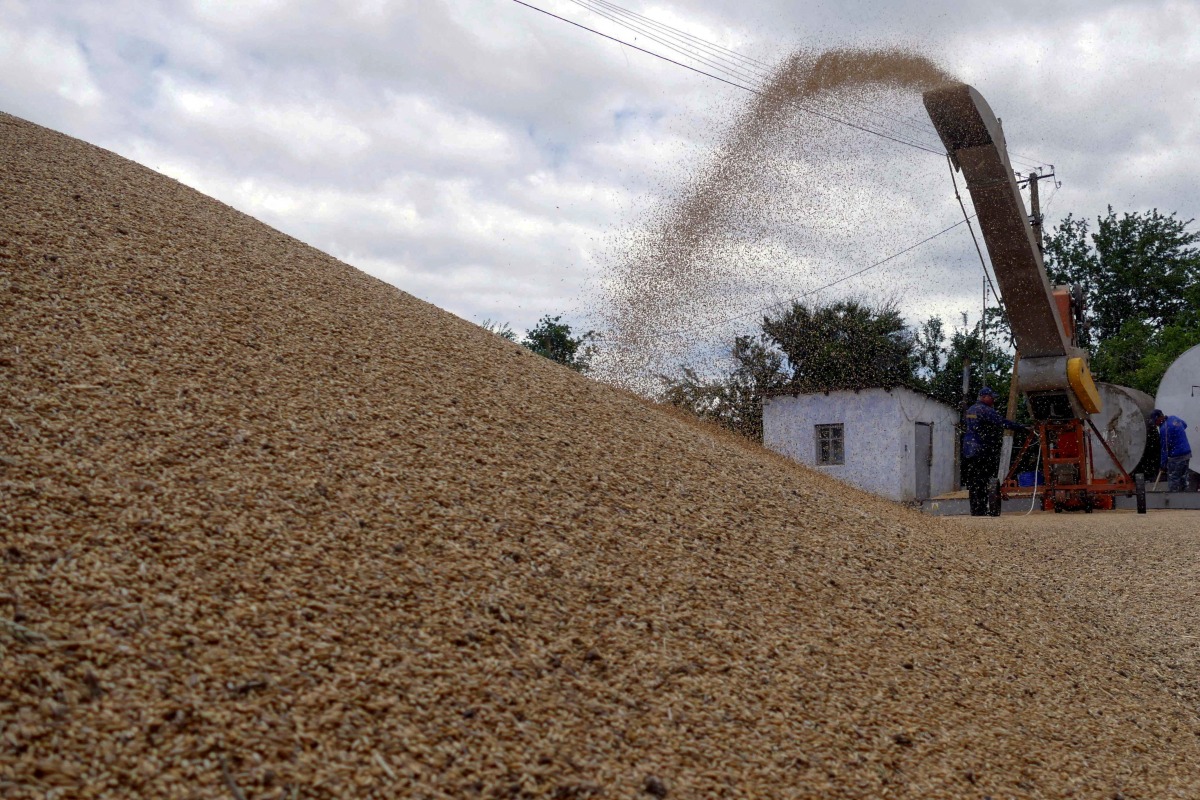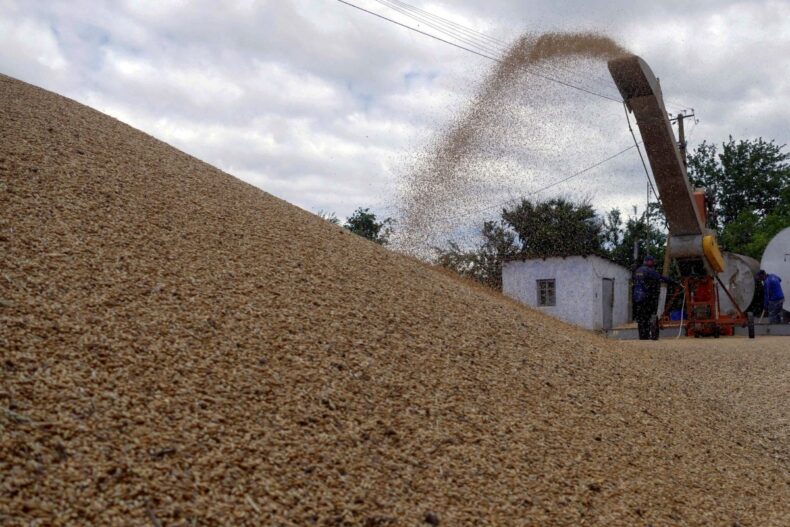It might be easier to export grain from the country’s ports now that the Ukraine prime minister said on Saturday that merchant sailors would be allowed to leave the country if they received authorization from their regional military administrative authority. In addition to students who must finish their practical training onboard ships, he pointed out that the change would also apply to male crew members of the river and ocean-going vessels. Since most Ukrainian men between the ages of 18 and 60 are forbidden from leaving the nation, a sort of martial law has been enacted while Ukraine confronts the Russian invasion. Women of all ages have always had the freedom to go.

On Saturday, the Ukrainian prime minister announced that merchant seamen would be permitted to depart Ukraine if they gained permission from their regional military administrative body, which might facilitate grain export from the nation’s ports. The choice had been approved by the cabinet, according to Premier Denys Shmyhal, on Saturday. He noted that the change would apply to male crew members of the river and seagoing ships as well as to students who must complete practical training onboard ships.
As a result of this choice, there will be a decrease in the number of sailors available to crew vessels as they enter and exit Ukraine so that grain can be exported through a route that has been negotiated internationally. For the proposed grains corridor intended to ease an international food crisis, finding enough seamen ready to sail ships locked inside Ukraine’s ports is going to be a significant difficulty. Russia and Ukraine agreed upon the resumption of grain and fertilizer exports that had been halted in the Black Sea last week, and Turkey unveiled a center on Wednesday to coordinate the process.
According to information from the U.N. shipping agency, the International Maritime Organization (IMO), and shipping sources, there are about 450 people left on the estimated 80 vessels that are still operating, the majority of which are dry bulk ships that transport grain but also other cargo ships carrying other commodities. According to the agreement reached by the U.N. last week, the first grain shipments from Ukraine should theoretically start to depart Black Sea ports within days. However, not many seafarers are prepared to visit the area until they witness the first ships, which must navigate around sea mines, making it safely through.
HIGH VALUE
While the stakes are high for sailors, global markets also have significant ramifications. Around a third of the world’s wheat exports were made by Russia and Ukraine prior to its invasion, which it describes as a “special military operation,” which started on February 24. The World Food Programme estimates that approximately 47 million people are now experiencing “acute hunger” as a result of the invasion, which caused food prices to spike.
The ITF claims that member safety is just as vital to it as the success of the grain corridor. Together with our social partners, the shipowners and marine employers, “we would hope to set clear criteria on both safety and risk to the crew,” said Cotton of the ITF. It has written to the Ukrainian government and associated unions to plead with President Zelenskiy to grant Ukrainian seafarers “dispensation from mandatory military duty.”
A form of martial law has been implemented as Ukraine fights the Russian invasion, and most Ukrainian men between the ages of 18 and 60 are prohibited from leaving the country. The right to depart has always been available to women of all ages.
By Harsha Josephine Antony | On Sat 27 Aug 2022 | 9.00 pm IST |













